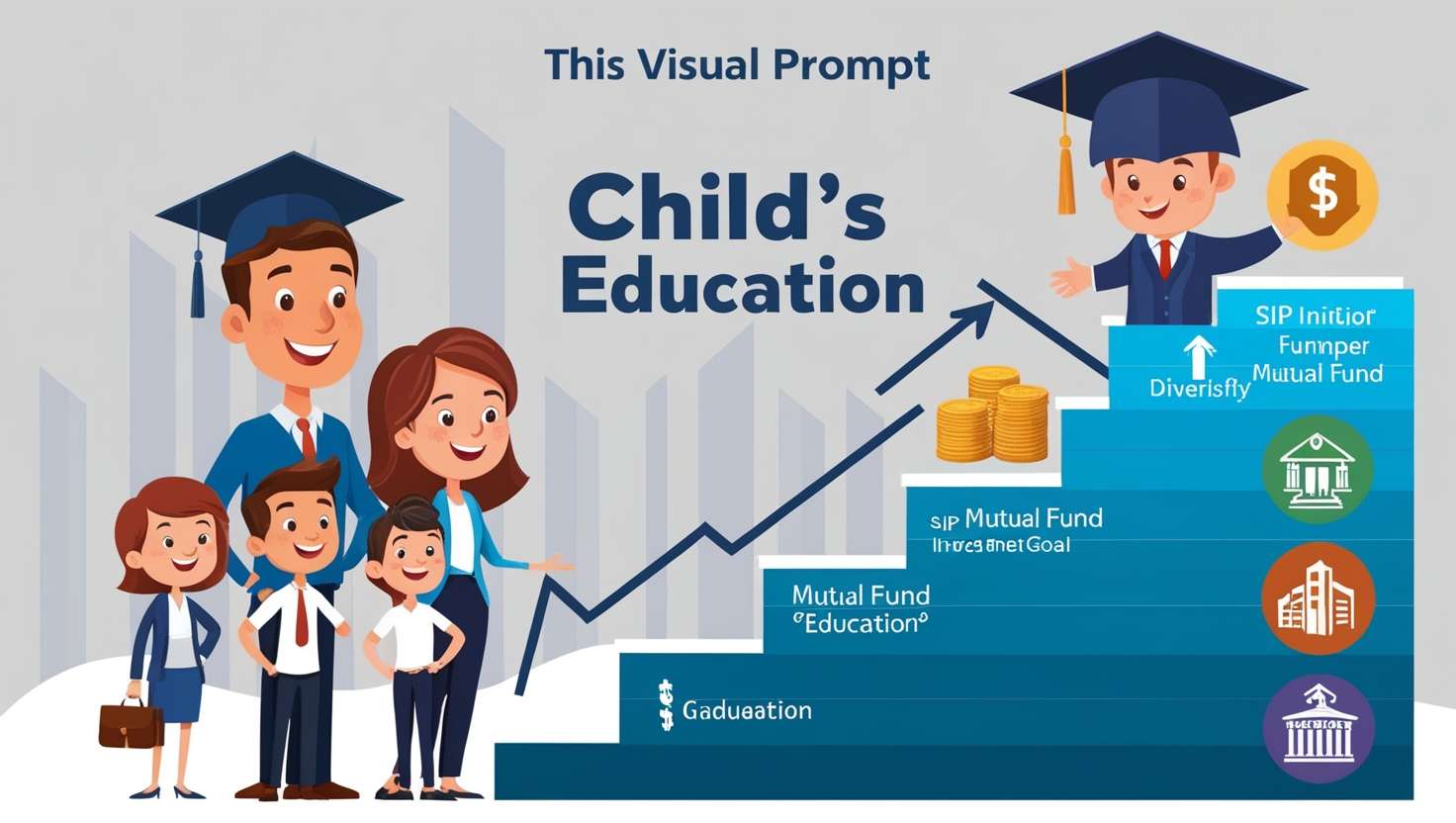
Introduction
In this article, I will explain how you can leverage mutual funds to secure your child’s higher education. Education costs are rising every year, making it essential to plan well in advance. Mutual funds provide a disciplined and effective approach to building a corpus that can support your child’s future educational goals. Whether you are just beginning your investment journey or looking to optimize your current strategy, mutual funds offer flexibility, diversification, and the potential for growth that aligns with long-term educational planning.
Understanding the Importance of Financial Planning for Higher Education
Higher education is one of the most significant investments you will make for your child. With tuition fees, accommodation, books, and other expenses rising steadily, it’s crucial to start saving early. Mutual funds can help bridge the gap between your current savings and future educational expenses. By investing in mutual funds, you can take advantage of compounding, professional management, and systematic investment plans (SIPs) that can grow your corpus over time.
Why Choose Mutual Funds for Education Planning?
Mutual funds are a versatile investment tool that allows you to invest across various asset classes, including equities, debt, and hybrid funds. This diversification helps in balancing risk and returns, which is essential for long-term goals like education. The key benefits of using mutual funds for education planning include:
- Flexibility: You can start with a small amount and gradually increase your investments as your income grows.
- Professional Management: Fund managers with expertise in financial markets manage your investments.
- Systematic Investment Plan (SIP): SIPs allow you to invest regularly, ensuring disciplined savings and benefiting from rupee cost averaging.
- Tax Efficiency: Certain mutual funds, like Equity Linked Savings Schemes (ELSS), offer tax benefits under Section 80C of the Income Tax Act.
Types of Mutual Funds Suitable for Education Planning
Different mutual funds cater to various financial goals. When planning for your child’s higher education, consider the following types of mutual funds:
- Equity Funds: Suitable for long-term goals (8-10 years or more), as they offer the potential for higher returns. They are ideal for starting early in your child’s life.
- Debt Funds: Lower risk compared to equity funds, making them suitable for short to medium-term goals. They provide stability to your portfolio.
- Hybrid Funds: A mix of equity and debt, hybrid funds balance risk and returns. They are ideal for medium to long-term goals, offering growth with some degree of safety.
How to Start a Mutual Fund Investment for Your Child’s Education
Starting a mutual fund investment is straightforward. Here’s a step-by-step guide:
- Determine the Education Cost: Estimate the future cost of education, considering inflation.
- Set a Target Corpus: Based on the estimated cost, set a target amount you need to accumulate.
- Choose the Right Mutual Funds: Based on your risk appetite and investment horizon, select appropriate mutual funds.
- Start a SIP: Initiate a Systematic Investment Plan to invest regularly in your chosen mutual funds.
- Review and Adjust: Periodically review your investments and make adjustments based on market conditions and your financial situation.
Case Study: Mr. Sharma’s Journey with Mutual Funds for His Child’s Education
Mr. Sharma, a professional with 30 years of experience, started investing in mutual funds when his daughter was born. He began with a modest SIP in an equity fund, gradually increasing his investment as his income grew. By the time his daughter was ready for college, Mr. Sharma had accumulated a substantial corpus, thanks to the power of compounding and disciplined investing. His foresight and careful planning ensured that his daughter could pursue her dream of studying abroad without financial worries.
Conclusion: The Road Ahead
Planning for your child’s higher education is not just about saving money but also about making informed investment choices. Mutual funds offer a practical and effective way to achieve this goal. By starting early, choosing the right funds, and investing consistently through SIPs, you can build a robust financial foundation for your child’s future. Remember, the key to success lies in planning, discipline, and periodic review of your investments.
FAQs on Leveraging Mutual Funds for Child’s Education
- What is a mutual fund? A mutual fund pools money from various investors to invest in diversified assets like stocks and bonds, managed by professional fund managers.
- How can mutual funds help in planning for education? Mutual funds provide growth potential through compounding and diversification, making them suitable for long-term educational goals.
- Which type of mutual fund is best for long-term education planning? Equity funds are generally recommended for long-term goals due to their potential for higher returns over time.
- What is a SIP? A Systematic Investment Plan (SIP) allows you to invest a fixed amount regularly in mutual funds, promoting disciplined savings.
- Is it safe to invest in mutual funds for education planning? Mutual funds carry some risk, but by choosing the right funds and investing for the long term, you can manage risk effectively.
- How much should I invest monthly for my child’s education? This depends on your financial goals, target corpus, and investment horizon. A financial advisor can help you determine the right amount.
- Can I withdraw money from mutual funds before my child’s education? Yes, but it’s advisable to stick to your investment plan to meet your long-term goals.
- Are mutual funds tax-efficient for education planning? Yes, especially ELSS funds, which offer tax benefits under Section 80C.
- What happens if I stop my SIP midway? Stopping a SIP will affect your investment growth, but you can restart or adjust your SIP according to your financial situation.
- How do I choose the right mutual fund for my child’s education? Consider factors like your risk tolerance, investment horizon, and the fund’s performance history. Consulting with a financial advisor can help you make an informed choice.






